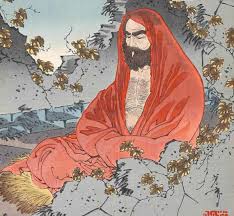Plague Journal, Worth It?
 Our philosophy discussion last night was conducted via zoom. Admittedly not as satisfying, but a conference call among six to eight people, their presence indicated by a postage-stamp scale image is better than nothing. Evening comes earlier now, with the chill, precluding our custom of sitting in a big circle of chairs on the lawn in Long Grove. Now, we wrestle with ideas, the Socratic agon, connected by our screens, enabled by lines of code residing on servers possibly in China,…
Our philosophy discussion last night was conducted via zoom. Admittedly not as satisfying, but a conference call among six to eight people, their presence indicated by a postage-stamp scale image is better than nothing. Evening comes earlier now, with the chill, precluding our custom of sitting in a big circle of chairs on the lawn in Long Grove. Now, we wrestle with ideas, the Socratic agon, connected by our screens, enabled by lines of code residing on servers possibly in China,…
We discussed Buddhism, the Zen variety that took root in China around 500 BCE when Bodhidharma arrived from India. He is a legendary figure, surrounded by many stories, as you’d expect with any religious founder. Bodhidharma was an advocate of sitting meditation while facing a wall, until enlightenment “just came.” Legend has it that he sat for nine years, and lost the use of his legs in the process. It was worth it.
Is Zen Buddhism, primarily a religion, a way of salvation by meditation, ostensibly by doing nothing? Or is the practice of Zen a moral aestheticism? Does a person “just know” the appropriate response to a moral dilemma by means of a refined sense of beauty, such as the proportions displayed in the tea ceremony, or the ability to draw a sword and slay an adversary with economy of effort and elegance? Are beauty, morality, and religion directly related or indirectly related? I suppose at a minimum, that everything is related to everything else. We know that humans, as well as every living thing is a product of stardust, and so we are related to the distant cosmos.
How am I to take the measure of a prospective release from suffering/misery — offered without any sacred text?
The comments offered by group members were stimulating, challenging to my customary manner of thinking. A question directed to me at the end of the session still echoes in my mind. I was asked if what I just said was “Christian?” I knew what the questioner was asking. The answer which I had to give was “no.”
Ah life. Life surely leads us down a far road. In my own case, far away from the fundamentalist ‘Christian’ point of view within which I grew to adulthood. So much has changed. Nevertheless, I know that somehow I am not very far from home.
To pursue my interest in Zen Buddhism I received two books via the impressive performance of Amazon. (I suspect the discipline, practice and achievement of Amazon’s Jeff Bezos is not unlike that of a sword-master) The first title, The Unborn, the life and Teaching of Zen Master Bankei translated by Norman Waddell. The second title is Watsuji Tetsuro’s Rinrigaku Ethics in Japan translated by Yamamoto Setsaku and Robert C. Carter.
We journey on.
Eddie Van Halen died yesterday, Tuesday at 65. Never saw him perform in person. Whenever, and however I hear this tune by Van Halen, I feel goose-bumps. He was a ‘guitar god.’
Play on, brother!
Jump
I get up
And nothing gets me down
You got it tough
I’ve seen the toughest all around
And I know
Baby, just how you feel
You’ve got to roll
With the punches to get to what’s real
Oh can’t you see me standing here
I’ve got my back against the record machine
I ain’t the worst that you’ve seen
Oh can’t you see what I mean?
Might as well jump. Jump!
Might as well jump
Go ahead, jump. Jump!
Go ahead and jump
Ah-oh, hey you! Who said that?
Baby, how you been?
You say you don’t know
You won’t know until you begin
So can’t you see me standing here
I’ve got my back against the record machine
I ain’t the worst that you’ve seen
Oh can’t you see what I mean?
Might as well jump. Jump!
Go ahead and jump
Might as well jump. Jump!
Go ahead and jump
Jump!
Might as well jump. Jump!
Go ahead and jump
Get it and jump. Jump!
Go ahead and jump
Jump! Jump! Jump! Jump!
lyrics by David Lee Roth
David Lee Roth was riding around in the back of his 1951 Mercury, with band roadie Larry Hostler driving, Roth listened repeatedly to the tune. To come up with a lyric for it, he remembered seeing a television news report the night before about a man who was threatening to commit suicide by jumping off a high building. Roth thought that one of the onlookers of such a scene would probably shout “go ahead and jump”. Roth bounced this suggestion off Hostler who agreed it was good. Instead of being about a threatened suicide, the words were written as an invitation to love. — Wikipedia